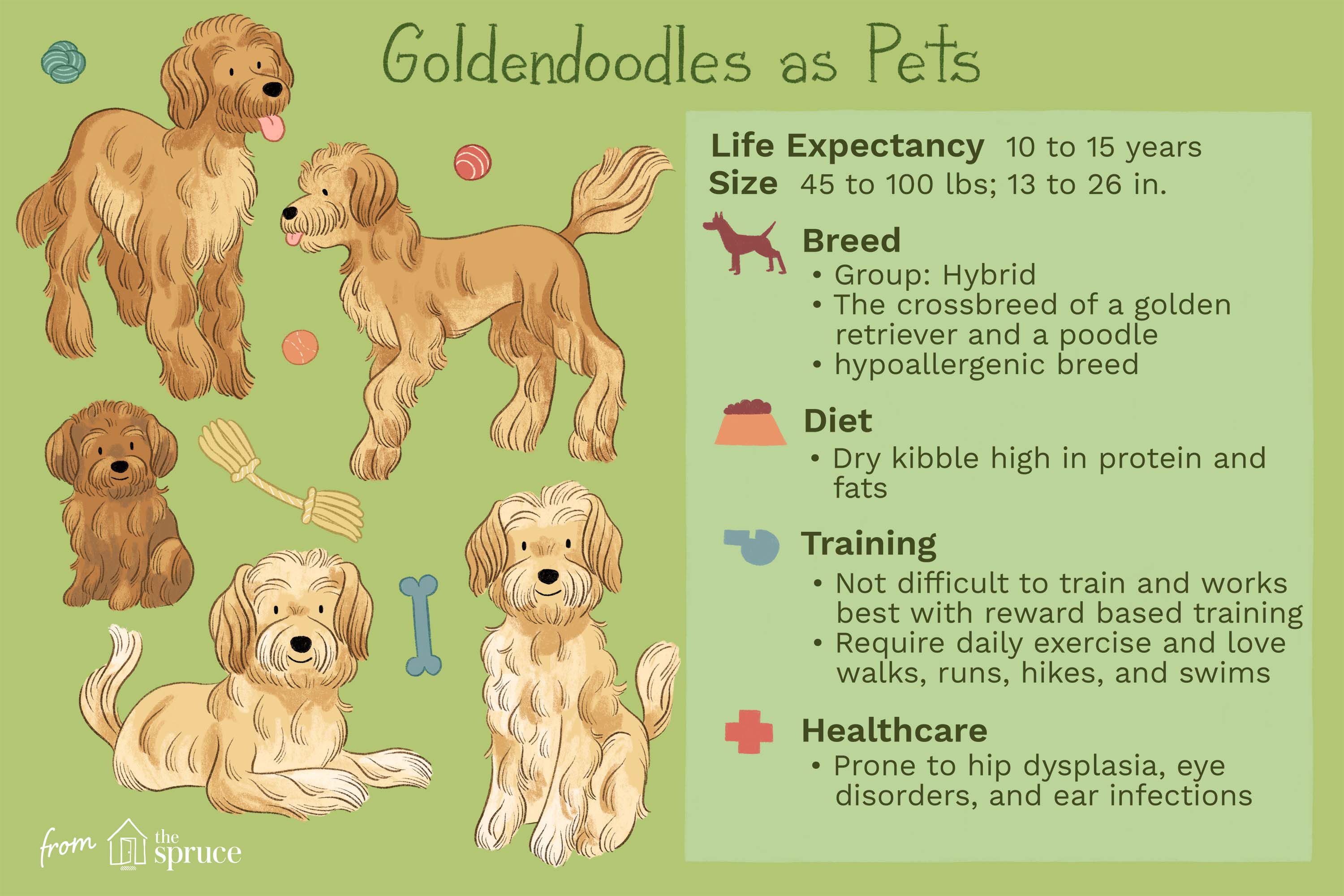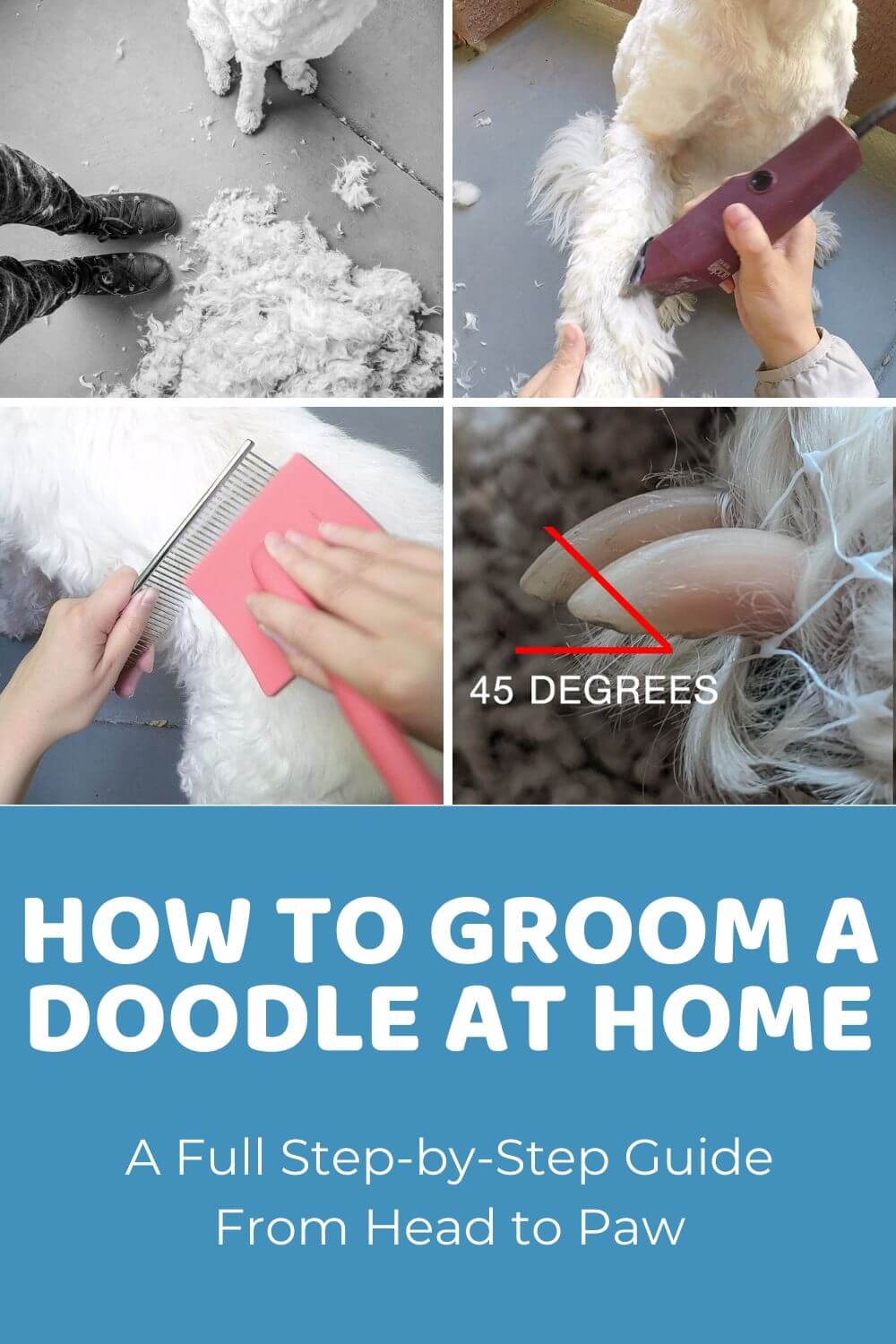Are Goldendoodles Healthy? If you’re curious about the health of Goldendoodles, you’re in the right place! These adorable crossbreeds, a mix between a Golden Retriever and a Poodle, have become increasingly popular in recent years. But what makes them so lovable and appealing? Well, apart from their cute appearance and friendly nature, many people are drawn to the idea of having a healthy and low-maintenance dog. So, let’s explore whether Goldendoodles live up to their reputation as a healthy breed.
When it comes to Goldendoodle health, there are a few factors to consider. This hybrid breed tends to inherit positive attributes from both parent breeds, but as with any dog, individual health can vary. However, the general consensus among dog owners and experts is that Goldendoodles are relatively healthy overall. They often inherit the intelligence and non-shedding coat of Poodles, making them a popular choice for those with allergies. Additionally, Golden Retrievers contribute to their friendly and sociable nature.
While Goldendoodles are generally healthy, it’s important to note that they can still be prone to certain health issues. Like other larger dog breeds, hip dysplasia and certain types of cancers can be a concern. Regular visits to the veterinarian, proper nutrition, and regular exercise can go a long way in keeping your Goldendoodle healthy. Remember, every dog is unique, so it’s essential to monitor their health and provide appropriate care tailored to their individual needs.
Now that you have a better understanding of Goldendoodle health, you can make an informed decision if you’re considering adding one of these furry friends to your family. With their infectious enthusiasm and gentle temperament, Goldendoodles can bring joy and companionship to your life. So, let’s delve deeper into the world of Goldendoodles to discover more about their care, temperament, and training!

Table of Contents
- Are Goldendoodles Healthy?
- The Basics of Goldendoodles’ Health
- The Benefits of Owning a Goldendoodle
- Choosing a Healthy Goldendoodle
- A Happy and Healthy Goldendoodle
- Key Takeaways: Are Goldendoodles Healthy?
- Frequently Asked Questions
- Question 1: What are the common health issues that Goldendoodles may face?
- Question 2: How can I ensure the health of my Goldendoodle?
- Question 3: Can Goldendoodles be prone to obesity?
- Question 4: Are Goldendoodles hypoallergenic?
- Question 5: Are there any genetic tests available for Goldendoodles?
- 7 Reasons You SHOULD NOT Get a Goldendoodle
- Summary
Are Goldendoodles Healthy?
Goldendoodles have gained enormous popularity in recent years, thanks to their adorable appearance and friendly nature. But as potential pet owners consider bringing home a Goldendoodle, one important question lingers: Are Goldendoodles healthy? In this comprehensive guide, we will explore the health of Goldendoodles, addressing common concerns, potential health issues, and tips for keeping your furry friend in optimal health.
The Basics of Goldendoodles’ Health
Goldendoodles are a hybrid breed, a cross between Golden Retrievers and Poodles. This combination was originally sought out for its hypoallergenic and non-shedding qualities, which makes Goldendoodles an excellent choice for individuals with allergies. In general, Goldendoodles are known to be relatively healthy dogs, inheriting some of the favorable characteristics from both parent breeds. However, like any other breed, Goldendoodles can also be prone to certain health issues.
Common Health Concerns
1. Hip Dysplasia: Hip dysplasia is a common concern for many large dog breeds, and Goldendoodles are no exception. This condition occurs when the hip joint does not develop properly, resulting in discomfort, lameness, and arthritis. Regular exercise, a balanced diet, and weight management can help reduce the risk of hip dysplasia in Goldendoodles.
2. Ear Infections: With their floppy ears, Goldendoodles are prone to ear infections. It’s essential to regularly inspect and clean your Goldendoodle’s ears to prevent moisture buildup and bacterial infections. Plus, regular grooming appointments can help ensure proper ear care.
3. Allergies: While Goldendoodles are often considered hypoallergenic, each individual dog can have different allergenic qualities. Some Goldendoodles may still trigger allergies in individuals with severe sensitivities. If allergies are a concern, spend time with a Goldendoodle before bringing one home to see if it triggers any adverse reactions.
Health Tips for Goldendoodle Owners
1. Regular Vet Check-ups: Scheduling regular vet check-ups is vital for maintaining your Goldendoodle’s health. These visits allow your vet to monitor your dog’s overall wellbeing, catch any potential health issues early, and provide necessary vaccinations.
2. Balanced Diet: Providing your Goldendoodle with a balanced diet is crucial for their overall health. Consult your vet to determine the best diet options, including the right combination of proteins, carbohydrates, and fats. Avoid overfeeding, as Goldendoodles can be prone to obesity.
3. Regular Exercise and Mental Stimulation: Goldendoodles are active and intelligent dogs that require regular exercise and mental stimulation. Plan daily walks, engage in interactive play sessions, and provide puzzle toys to keep them physically and mentally stimulated.
The Benefits of Owning a Goldendoodle
Goldendoodles offer more than just being adorable and cuddly pets. Here are some key benefits of owning a Goldendoodle:
1. Allergy-Friendly:
Goldendoodles are often touted as hypoallergenic dogs. While no dog is truly hypoallergenic, Goldendoodles produce fewer allergens than some other breeds, making them a suitable choice for individuals with allergies.
2. Intelligence and Trainability:
Both Golden Retrievers and Poodles are intelligent breeds, and Goldendoodles inherit these traits. They tend to be quick learners, making training sessions enjoyable and effective. Their desire to please their owners also enhances their trainability.
3. Versatility:
Goldendoodles are known for their versatility, making them great companions for various lifestyles. Whether you’re an active individual looking for a jogging partner or a family seeking a friendly and patient pet, Goldendoodles can adapt to different environments and personalities.
Choosing a Healthy Goldendoodle
When searching for a Goldendoodle, it’s essential to choose a reputable breeder who prioritizes the health and well-being of their dogs. Here are some tips to help you choose a healthy Goldendoodle:
1. Research and Recommendations:
Do thorough research on breeders in your area and ask for recommendations from trusted sources, such as veterinarians or local pet organizations. Look for breeders who are members of recognized dog breeding associations and adhere to ethical breeding practices.
2. Health Screening:
Inquire about the health screening procedures the breeder follows. Responsible breeders should conduct health screenings on their parent dogs, ensuring they are free from hereditary health issues that can be passed down to their offspring.
3. Meet the Parents:
Whenever possible, visit the breeder and meet the parent dogs. This can give you an idea of their temperament and overall health. Healthy parents are more likely to produce healthy puppies.
A Happy and Healthy Goldendoodle
By providing your Goldendoodle with proper care, attention, and a healthy environment, you can contribute to their overall well-being. Remember to schedule regular vet check-ups, maintain a balanced diet, keep them physically and mentally stimulated, and shower them with love and affection. With your commitment as a responsible pet owner, your Goldendoodle is sure to live a happy and healthy life.
Key Takeaways: Are Goldendoodles Healthy?
- Goldendoodles are generally considered a healthy breed.
- Regular exercise and a balanced diet are important for their overall well-being.
- Like all dogs, they may be prone to certain health issues such as hip dysplasia or allergies.
- Regular veterinary check-ups and vaccinations are crucial for their health.
- Maintaining good dental hygiene is important to prevent dental problems.
Frequently Asked Questions
Question 1: What are the common health issues that Goldendoodles may face?
Goldendoodles are generally healthy dogs, but like any other breed, they can be prone to certain health issues. One common health concern is hip dysplasia, which is a condition where the hip joint does not develop properly. This can lead to pain and lameness in the hind legs. Another potential issue is allergies, which can manifest as itching, skin irritation, or digestive problems. Goldendoodles may also be susceptible to certain eye conditions such as progressive retinal atrophy or cataracts. Regular vet check-ups and proper care can help minimize these risks.
It’s important to note that not all Goldendoodles will develop these health issues, and responsible breeders strive to produce healthy puppies by conducting health screenings and selecting breeding pairs carefully.
Question 2: How can I ensure the health of my Goldendoodle?
To ensure the health of your Goldendoodle, there are several steps you can take. Firstly, provide them with a balanced and nutritious diet specifically formulated for their needs. Regular exercise is also crucial to maintain their overall well-being and prevent obesity. Regular grooming, including brushing their coat and cleaning their ears, can help prevent skin problems and infections.
Additionally, schedule regular vet check-ups to monitor their health and address any concerns early on. Vaccinations and preventive medications, such as flea and tick control, should also be administered as recommended by your veterinarian. Lastly, be mindful of their mental health by providing enrichment activities and plenty of socialization.
Question 3: Can Goldendoodles be prone to obesity?
Goldendoodles can be prone to obesity if not properly managed. These dogs have an appetite for food and may overeat if given the chance. Obesity can lead to a range of health problems, including joint issues, heart disease, and diabetes. It’s important to feed them a balanced diet and monitor their portion sizes to prevent excessive weight gain. Regular exercise is also crucial to keep them fit and maintain a healthy weight.
If you’re unsure about your Goldendoodle’s weight or diet, consult with your veterinarian who can provide guidance tailored to your dog’s specific needs.
Question 4: Are Goldendoodles hypoallergenic?
Goldendoodles are often referred to as hypoallergenic, meaning they are less likely to cause allergies in individuals who are sensitive to pet dander. However, it’s important to note that no dog breed is completely hypoallergenic. Goldendoodles have hair rather than fur, which can reduce the amount of shedding and dander in the environment. This can be beneficial for people with allergies, but individual reactions may still vary.
If you or a family member has allergies, it’s recommended to spend time with a Goldendoodle before bringing one into your home to see if any allergic reactions occur.
Question 5: Are there any genetic tests available for Goldendoodles?
Yes, there are genetic tests available for Goldendoodles. These tests can help identify potential genetic health issues that may be present in the breed. By screening for specific genetic markers, breeders can make informed decisions when selecting breeding pairs, reducing the risk of passing on certain health conditions to offspring. Genetic testing can also provide valuable information for owners, allowing them to be proactive in managing their dog’s health and well-being.
If you’re considering getting a Goldendoodle, it’s advisable to inquire about the breeder’s health testing protocols and request information on the genetic health of the parents.
7 Reasons You SHOULD NOT Get a Goldendoodle
Summary
So, to sum it all up, Goldendoodles are a popular crossbreed dog that has a mixture of Golden Retriever and Poodle genes. They come in different sizes and have a variety of coat types, including curly and wavy.
While Goldendoodles can make great family pets and are generally healthy, there are a few things to consider. Some Goldendoodles may be prone to certain health issues, like hip dysplasia and allergies. Regular exercise and a balanced diet can help keep them fit and strong.
It’s important to find a responsible breeder who performs health testing on their dogs to ensure you’re getting a healthy puppy. Regular vet check-ups and vaccinations are also crucial for their well-being.
Remember, every dog is unique, and taking good care of your Goldendoodle will ensure they live a happy and healthy life. So, if you’re considering getting a Goldendoodle, make sure you do your research, find a reputable breeder, and give them all the love and care they deserve!



